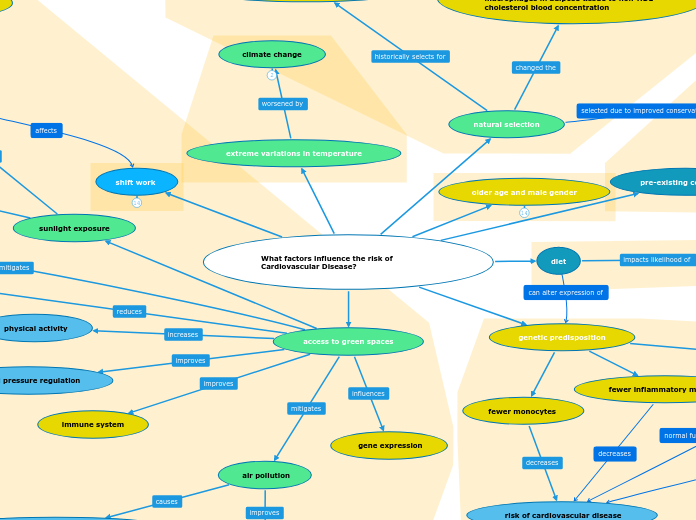What factors influence the risk of Cardiovascular Disease?
access to green spaces
stress
physical activity
blood pressure regulation
air pollution
air quality
risk of chronic inflammatory diseases
cardiovascular injuries in healthy people
immune system
noise pollution
sleep
cardiovascular function
bodily homeostasis
increase heart rate
sunlight exposure
circadian rhythms
immune response
bodily functions
cholesterol
gene expression
diet
overweightness and obesity
shift work
extreme variations in temperature
climate change
genetic predisposition
expression of gene involved in low-density lipoprotein oxidation
fewer monocytes
risk of cardiovascular disease
fewer inflammatory markers
pre-existing conditions
hypertension
Black people
hot climates and poor living conditions during the slave trade
angiotensinogen, G-protein B3 subunit, and epithelial Na+ channel subunit gene
hypercholesterolemia
natural selection
proportion of pro-inflammatory macrophages in adipose tissue to non-HDL cholesterol blood concentration
increase in fighting off infections
phenotypes with high plasma cholesterol concentration and high blood pressure
higher risk of Cardiovascular Disease
